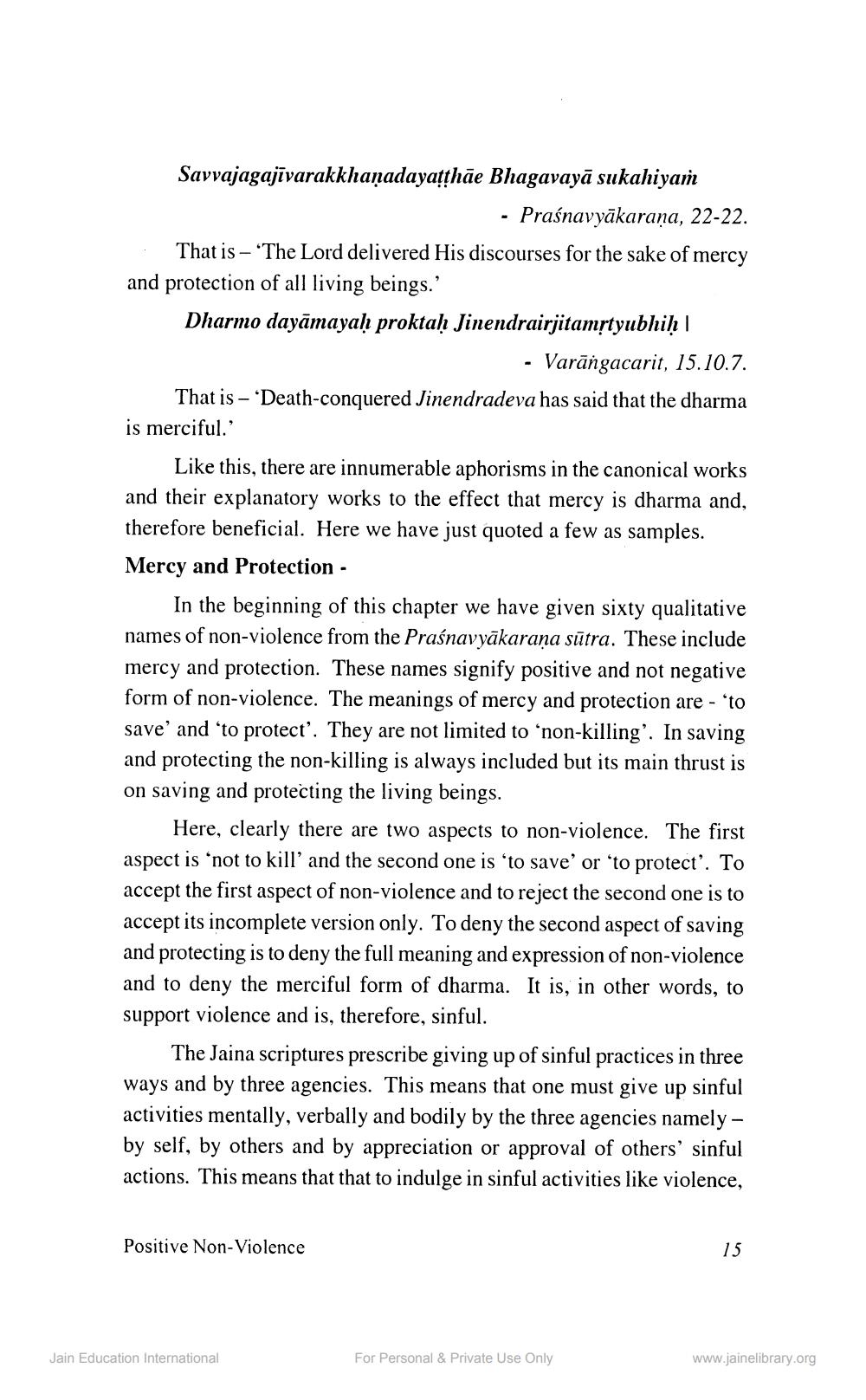________________
Savvajagajīvarakkhaṇadayatthāe Bhagavayā sukahiyam
- Praśnavyākaraņa, 22-22. That is - The Lord delivered His discourses for the sake of mercy and protection of all living beings.' Dharmo dayāmayaḥ proktah Jinendrairjitamặtyubhiḥ ||
- Varāngacarit, 15.10.7. That is – 'Death-conquered Jinendradeva has said that the dharma is merciful.'
Like this, there are innumerable aphorisms in the canonical works and their explanatory works to the effect that mercy is dharma and, therefore beneficial. Here we have just quoted a few as samples. Mercy and Protection -
In the beginning of this chapter we have given sixty qualitative names of non-violence from the Praśnavyākaraṇa sūtra. These include mercy and protection. These names signify positive and not negative form of non-violence. The meanings of mercy and protection are - 'to save' and 'to protect. They are not limited to 'non-killing'. In saving and protecting the non-killing is always included but its main thrust is on saving and protecting the living beings.
Here, clearly there are two aspects to non-violence. The first aspect is ‘not to kill' and the second one is 'to save' or 'to protect'. To accept the first aspect of non-violence and to reject the second one is to accept its incomplete version only. To deny the second aspect of saving and protecting is to deny the full meaning and expression of non-violence and to deny the merciful form of dharma. It is, in other words, to support violence and is, therefore, sinful.
The Jaina scriptures prescribe giving up of sinful practices in three ways and by three agencies. This means that one must give up sinful activities mentally, verbally and bodily by the three agencies namely - by self, by others and by appreciation or approval of others' sinful actions. This means that that to indulge in sinful activities like violence,
Positive Non-Violence
15
Jain Education International
For Personal & Private Use Only
www.jainelibrary.org




